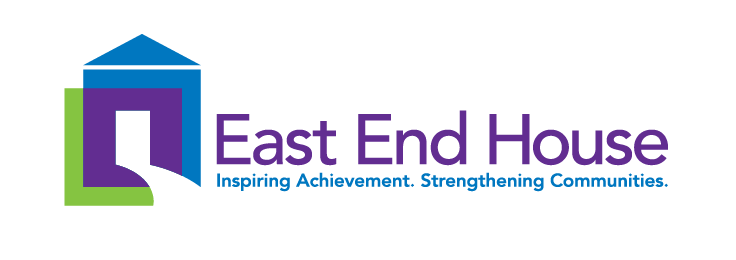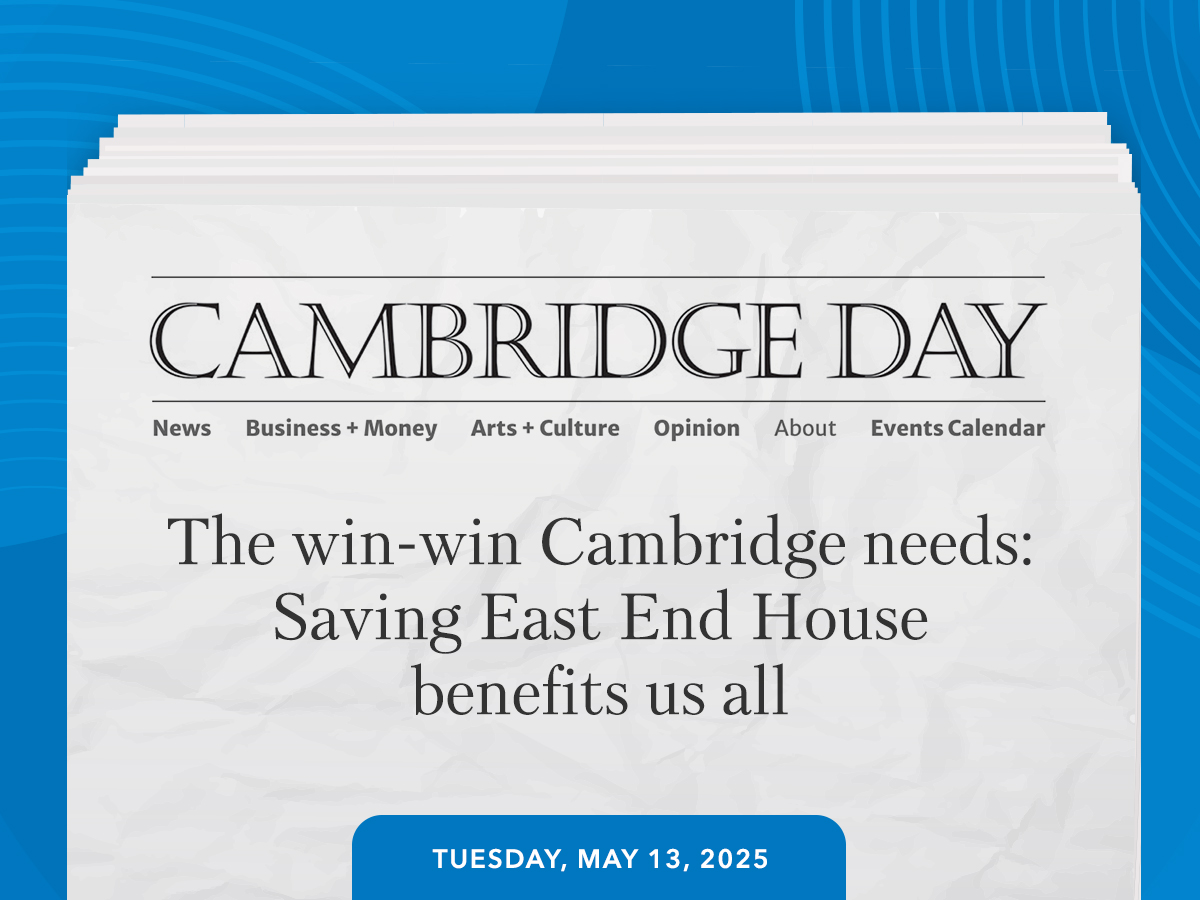In the coming days, the Cambridge City Council will have the opportunity to ensure the long-term success of the East End House, a critical resource for Cambridge families and individuals at a time its future is on the line.
For almost 150 years, East End House has been a lifeline for families across Cambridge – an anchor institution where thousands of residents suffering from food insecurity are fed, toddlers are cared for, youth have a safe place to grow and learn, parents are supported and seniors remain vital. But we are at a critical crossroads. Our building is crumbling, and community needs have never been greater. Without urgent investment, our friends and consumers will lose East Cambridge’s multiservice community center.
Each year, East End House serves more than 5,500 people across a population that reflects the rich diversity of the Cambridge community. Our reach spans every age group and neighborhood in Cambridge, and 93 percent of the families we serve are low- to moderate income. Many of them live on less than $20,000 annually.
Our home at 105 Spring St. is more than a century old, and a recent engineering survey confirmed the building has no more than three to five years of usable life remaining. Though we have sought every avenue to extend its life, rehabilitation is not an option; nor is the current physical footprint sufficient to meet the soaring demand for services in recent years, a need exacerbated by cuts to the federal and state assistance programs on which many of these families rely. Waitlists for our children’s programs grow longer each year. Teens and seniors need more spaces for social connection and support. Food insecurity persists, with 1 in 3 Cambridge residents affected, according to the Greater Boston Food Bank. The mental health needs of youth and families grow more acute.
Without a new, permanent facility, East End House will be forced to close or leave the neighborhood altogether. This would be a catastrophic loss, not just for East Cambridge, but for the entire city.
Testimonials from our community show they know what’s at stake.
“When Covid hit, I had no child care,” says one neighbor, an essential worker and East End House parent. “East End House gave my son a safe, loving place to go every day. Even on his days off, he begs to go back. That says everything.”
“East End House saved our lives,” said Eileen Pires, a grandmother raising her grandson after the loss of her daughter. “They gave us the support, grief counseling and care we needed to survive – and to thrive.”
And from Tim Ford, who grew up next door to East End House and has taught karate here since 1979: “East End House gave me a path. I’ve seen kids turn their lives around here. This place has saved more lives than you’ll ever know.”
These are not merely anecdotes. These are lifelines provided daily. They represent the immeasurable value of East End House.
That’s why the $21 million community benefit investment proposed through a 320 Charles St. rezoning by East End House’s longtime partner, BioMed Realty, is critical. It represents the best of what a for-profit and nonprofit partnership can achieve: sustaining vital community infrastructure through smart, equitable investment in a neighborhood that has carried the burden of development for decades. In addition to funding a new home for East End House, the Charles Street project will provide for other neighborhood needs, from open space to scholarship funds.
BioMed Realty has been helping East End House identify possible alternative sites for a larger, modern facility to serve the evolving needs of residents from East Cambridge and across the city. A new facility will enable us to at least double the number of Cambridge residents East End House can support, reaching nearly 10,000 people each year. But that cannot happen without the full community funding provided by this redevelopment, an essential resource for us as we seek a new home in this increasingly expensive neighborhood.
Should BioMed Realty be permitted to help East End House secure a new facility, new possibilities for housing development on our current site would also become explorable – helping meet Cambridge’s desperate need for housing at the same time.
The question is not whether this work is worth investing in. It is. How can we afford not to? And if not through this partnership, then how?
In the words of former city councillor and EEH adviser Dennis Carlone: “During my 10 years on the council, I learned that only a small percent of many nonprofits’ budgets came from our city. We are all responsible for investing in nonprofits that accept the responsibility for enhancing community life. The proposed BioMed Realty and East End House partnership could become a prototype for funding nonprofit infrastructure needs in the years to come.”
Cambridge cannot afford to lose East End House, nor an opportunity to efficiently and cost-effectively create housing. We are ready to grow, ready to serve and ready to build a future worthy of the community we love – now and for the next 150 years.
But to get there, we need the City Council’s help in ensuring that future.
Susan Lapierre is chair of the board of directors of East End House. Michael Delia is president and chief executive of East End House.


